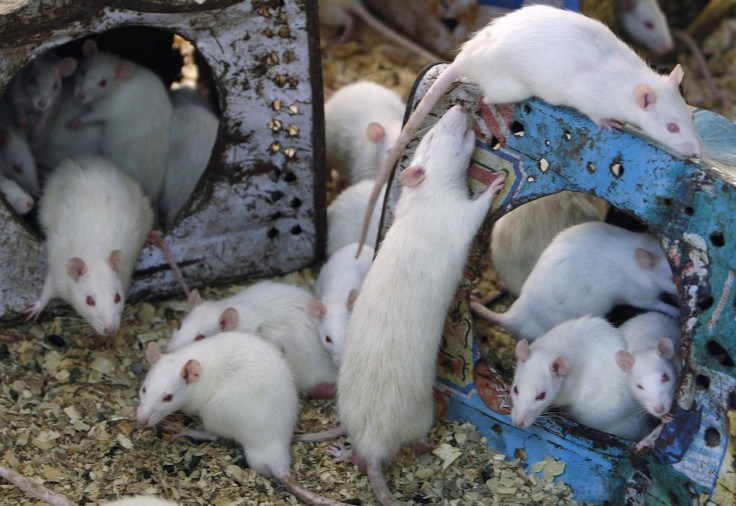Alzheimer's and Parkinson's Treatment Hope as Pill Halts Neurodegenerative Disease in Mice

Scientists are hopeful they can develop a pill to treat neurological diseases including Parkinson's and Alzheimer's.
Researchers at the Medical Research Council Toxicology Unit at the University of Leicester say they were able to halt neurodegeneration and restore protein production in the brains of mice with prion diseases, a family of rare progressive neurodegenerative disorders.
The pill was used to block the pathway leading to brain cell death and prevented degeneration.
The researchers had previously identified a major pathway leading to brain cell death in mice. They found the build-up of misfolded proteins in the brains of mice with prion disease over-activates a defence mechanism in cells, which switches off the production of new proteins.
This normally switches back on, but in mice with prion, there was a continued build-up of misshapen proteins and the switch stayed off. As a result, brain cells die because proteins essential for nerve ending survival stop being produced.
By blocking the off switch the team was able to restore protein production and halt neurodegeneration.
Published in Science Translational Medicine, the team orally administered a drug-like compound against the pathway to mice with prion in a bid to block the pathway in the same way.
It entered the brain in the bloodstream and halted the disease throughout the whole organ. However, the side effects included weight loss and mild diabetes as the drug damaged the pancreas.
Study leader Giovanna Mallucci said: "Our previous study predicted that this pathway could be a target for treatment to protect brain cells in neurodegenerative disease. So we administered a compound that blocks it to mice with prion disease.
"We were extremely excited when we saw the treatment stop the disease in its tracks and protect brain cells, restoring some normal behaviours and preventing memory loss in the mice."

Mallucci said they are a "long way" from developing a drug that can be used in humans because of the side effects, but the potential for drug therapies in the future is now a "real possibility".
Hugh Perry, chair of the MRC's Neuroscience and Mental Health Board, said: "Misshapen proteins in prion diseases and other human neurodegenerative disorders, such as Alzheimer's and Parkinson's, also over-activate this fundamental pathway controlling protein synthesis in the brains of patients.
"Despite the toxicity of the compound used, this study indicates that, in mice at least, we now have proof-of-principle of a therapeutic pathway that can be targeted. This might eventually aid the development of drugs to treat people suffering from dementias and other devastating neurodegenerative diseases."
Commenting on the findings, a spokesperson for the Alzheimer's Society described the study as "hugely exciting".
"This is a promising development as it shows this biological pathway is a potential target for new treatments. However, it is important to note that this study was carried out on mice with prion disease and so it is not clear how applicable it is to humans with diseases such as Alzheimer's.
"What we need now is further research into potential drugs which can target the same pathway. Whilst the ability to stop neurodegeneration in its tracks would be hugely exciting, we are still a long way from seeing a drug which is suitable for human use."
© Copyright IBTimes 2025. All rights reserved.






















